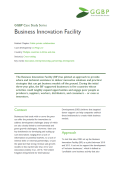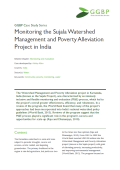Realising the vision of Karnataka, India, for job-oriented, inclusive economic growth will require sustainable industrialisation and livelihood diversification. However, such a transition is likely to increase the demand for resources and energy significantly. Additionally, the state’s dwindling resources and increasing vulnerability to climate change may threaten the achievement of inclusive growth.
This report synthesises two volumes of work that map out opportunities for sustainable growth in four key sectors: Energy, Agriculture, Water, and Forestry.
- The Green Economy Strategy focused on buildings, agriculture, industries, transport, and power supply—sectors that account for almost all of the state’s energy requirement and more than 70 percent of it’s 2010 greenhouse gas (GHG) emissions.
- The Climate Resilience Strategy focused on agriculture, forestry, and water. A long list of green growth opportunities for these sectors was identified based on their potential to reduce energy demand and GHG emissions and increase climate resilience in the long run.
After evaluating Karnataka’s long-term sustainability challenges, this report presents a Green Growth Strategy for the state, which proposes and prioritises a set of feasible interventions of reaching green growth. Implementation of this strategy, however, still requires concerted policy action and creation of action plans for specific interventions.


